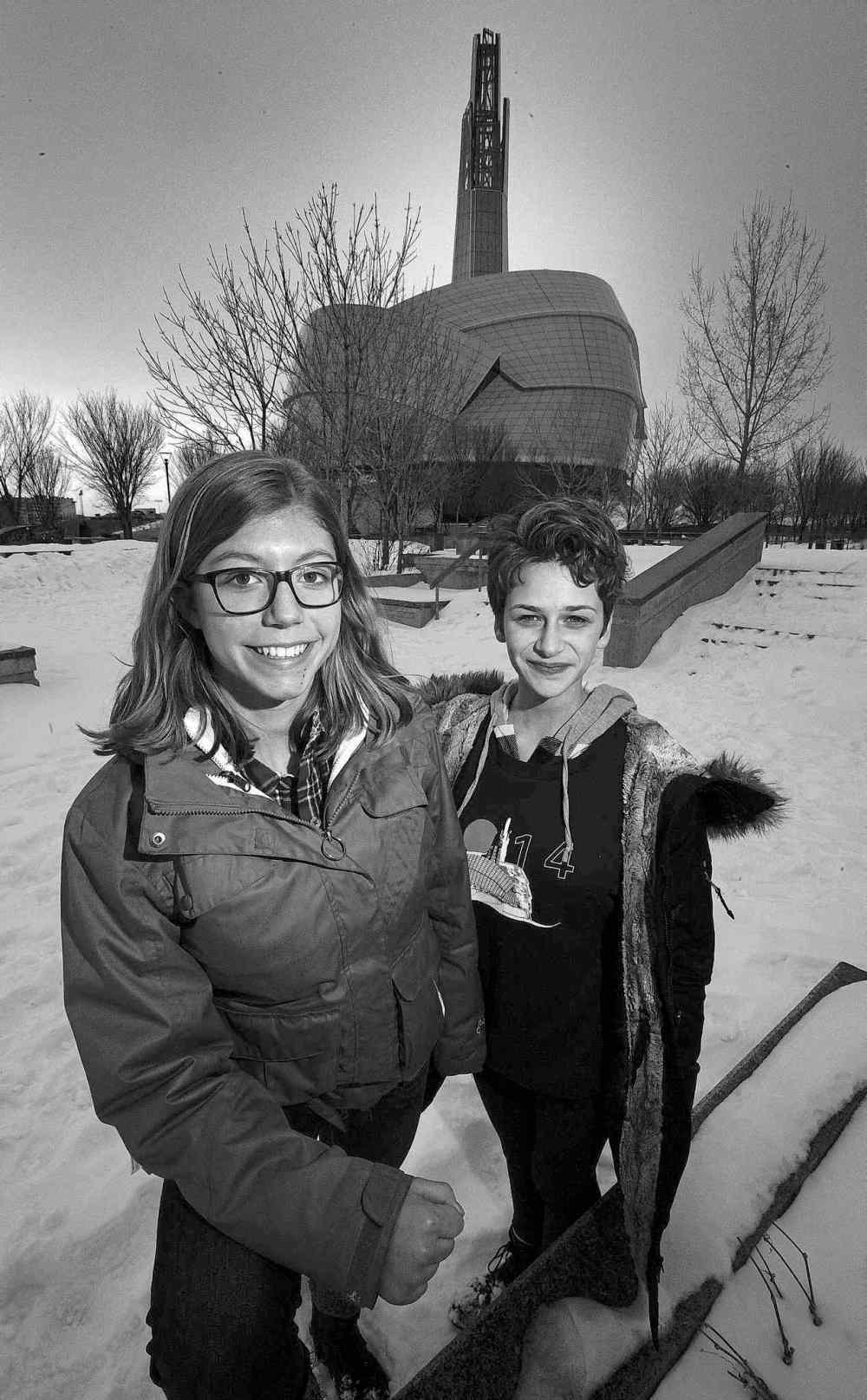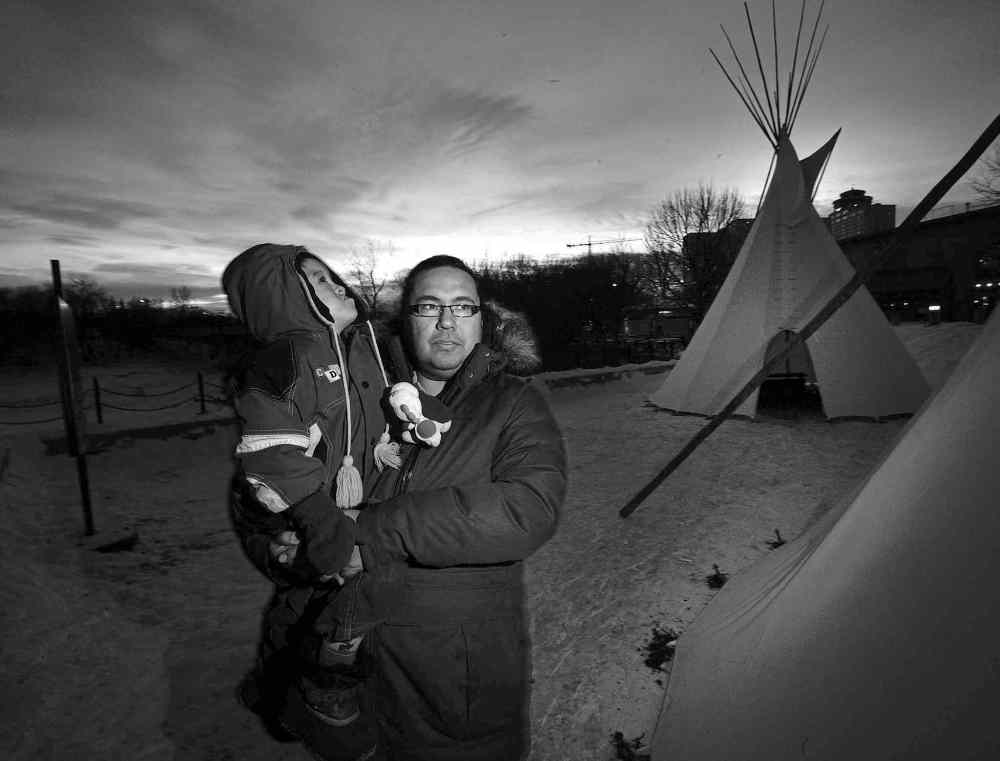Is our city really the ‘worst’ in Canada?
Maclean's story gets people talking about the state of race relations
Advertisement
Read this article for free:
or
Already have an account? Log in here »
To continue reading, please subscribe:
Monthly Digital Subscription
$0 for the first 4 weeks*
- Enjoy unlimited reading on winnipegfreepress.com
- Read the E-Edition, our digital replica newspaper
- Access News Break, our award-winning app
- Play interactive puzzles
*No charge for 4 weeks then price increases to the regular rate of $19.95 plus GST every four weeks. Offer available to new and qualified returning subscribers only. Cancel any time.
Monthly Digital Subscription
$4.99/week*
- Enjoy unlimited reading on winnipegfreepress.com
- Read the E-Edition, our digital replica newspaper
- Access News Break, our award-winning app
- Play interactive puzzles
*Billed as $19.95 plus GST every four weeks. Cancel any time.
To continue reading, please subscribe:
Add Free Press access to your Brandon Sun subscription for only an additional
$1 for the first 4 weeks*
*Your next subscription payment will increase by $1.00 and you will be charged $16.99 plus GST for four weeks. After four weeks, your payment will increase to $23.99 plus GST every four weeks.
Read unlimited articles for free today:
or
Already have an account? Log in here »
Hey there, time traveller!
This article was published 23/01/2015 (3997 days ago), so information in it may no longer be current.
Willis Petti was standing inside a teepee at The Forks Thursday when he was asked about a Maclean’s magazine article branding Winnipeg as a city that displayed “racism at its worst.”
He shrugged.
Petti is 39, of Dene Nation descent, and it’s not like he was hearing a breaking-news flash.

“I wasn’t surprised, actually,” he said. “It’s been boiling under the surface for a long time. Personal experience, seen and heard.”
Petti was born and raised in Winnipeg. He’s noticed security guards following him at stores, people crossing the street in front of him.
“Little things,” he said.
“I don’t let it bother me too much,” Petti said. “I can handle it. I’m more concerned with my kids.”
Petti was standing in the teepee with four-year-old son, Cassius, the youngest of his four children. His family lives in La Salle, but plans to move to Winnipeg this summer.
“I question whether that’s a smart thing now,” he said. “They’ve lived a pretty sheltered life so far.”
Petti wasn’t angry, sad or shocked.
Neither were most Winnipeggers interviewed about the Maclean’s cover story titled, Welcome to Winnipeg, where Canada’s racism problem is at its worst.
But the “most racist?” The “ugliest?”
Consensus varied on that.
“That’s a little harsh,” said Liv Gardiner, a 15-year-old Vincent Massey Collegiate student who was making her first trip to the Canadian Museum for Human Rights. “I definitely think there are racists, but there are racists in every city. I don’t think a specific city can be named the most racist.
“It’s not just Winnipeg. It’s all of Canada and the States.”
Both Liv and her classmate, Madeleine Dupuis, 15, were equally impressed by the response of Mayor Brian Bowman, who held a news conference Thursday to say: “We can either kill the messenger or respond.”
“Then we’re accepting the mistake and trying to fix the problem,” Dupuis said.
Added Gardiner: “It’s good he (Bowman) didn’t get defensive. That would have looked bad on Winnipeg.”
Jody and Bruce Miles, a retired couple also visiting the CMHR, disagreed with the assertion Winnipeg is “the ugliest.”

“I can say there’s discrimination, but not the most discrimination,” Bruce said. “Maybe it’s a matter of proportion, too.”
Winnipeg has the highest proportion of aboriginals of any major Canadian city.
Others were skeptical of a magazine applying “most racist” without much in the way of specific statistics.
“That’s a good headline-grabber,” offered Mark Roche. “That’s good for sales.”
“I think it sells magazines,” said Marina McCaffray, a retired school teacher.
Regardless of official or unofficial rankings, the existence of racism in Winnipeg, and the need to end it, was not in dispute.
“I’m sure there are problems everywhere,” said Susanne Gomez, who recently earned her master’s degree in sciences at the University of Winnipeg. “Whether we are the worst or not, everyone needs to contribute to solving these issues.”
“Am I naive to think education isn’t helpful?” McCaffray asked. “Certainly it has to change and we have to count on our younger generation to fix the problem.”
Petti might not have been surprised by Maclean’s ranking of Winnipeg. But he didn’t think it was entirely negative, either.
“I think it’s a good thing,” he said. “I got a message from (an aboriginal) friend of mine on Facebook today. He said people were being a lot nicer to him today. Maybe if we know more about what First Nations people go through, it will help.
“Smile a little bit more. A smile goes a long way.”
randy.turner@ freepress.mb.ca

Randy Turner
Reporter
Randy Turner spent much of his journalistic career on the road. A lot of roads. Dirt roads, snow-packed roads, U.S. interstates and foreign highways. In other words, he got a lot of kilometres on the odometer, if you know what we mean.
Our newsroom depends on a growing audience of readers to power our journalism. If you are not a paid reader, please consider becoming a subscriber.
Our newsroom depends on its audience of readers to power our journalism. Thank you for your support.





